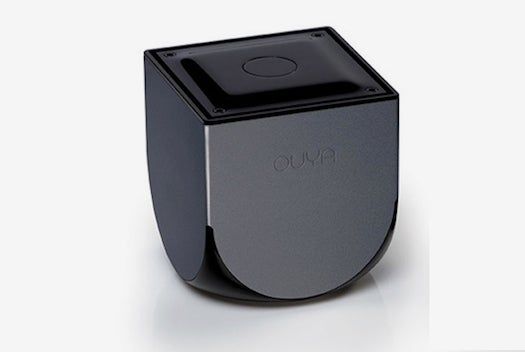Is Ouya Getting Scammed On Kickstarter?
A couple crowdfunding campaigns sure look suspicious. And the (crowdfunded) console company should've seen it coming.

We may earn revenue from the products available on this page and participate in affiliate programs. Learn more ›
The indie game console Ouya made waves last year for its massively successful Kickstarter campaign, where people ponied up almost $8.6 million (million) in funding. Now, the console is very possibly getting scammed on Kickstarter instead.
Backing up a bit: Ouya, a $99 game console that runs on Google’s Android operating system, doesn’t have many games. Recently, the company announced an initiative to bring more games to the console. For the “Free the Games Fund,” the company promised to match the total funds of any game that raised between $50,000 and $250,000 on Kickstarter.
There are some economic issues with that idea–most indie games aren’t shooting to make a game that takes a $50,000 budget, and six months of exclusivity is a long time for a game–but here’s the real snag: Why don’t people looking for funding just dump $50,000–or, hell, $250,000–into their own Kickstarter, then let Ouya shell out the matching funds?
That might’ve already happened. Last week, a game called Elementary, My Dear Holmes! was suspended by Kickstarter after concerns were raised about who was backing it. The developers said they had suspicions about illegitimate backers, and alerted Kickstarter, which then suspended the project. Kickstarter hasn’t identified what those concerns were (we reached out; they declined to comment). Ouya, for its part, is sticking with the fund.
Now another Kickstarter campaign, for the football game Gridiron Thunder, just closed at more than $171,000. On its face, that sounds great for those game developers. But Kicktraq, a service that charts Kickstarter project donations, turned up some sketchy numbers: the Kickstarter received an average of $934.48 per person. As Joystiq points out, that’s not impossible, but certainly a red flag: that would make the game several hundred dollars above the dollar-per-person mean for even the most popular games. Successful campaigns like the one for Yargis, where the mean donation was $275.05, still don’t even come close.
On the last day of funding for the game, 12 backers appeared and gave more than $45,000. Either some rich and generous people were for some reason drawn toward a game for a flailing system, or something else happened. We don’t know what that might be, or what Kickstarter saw in one project but not the other, but we’ll let you know once we do.